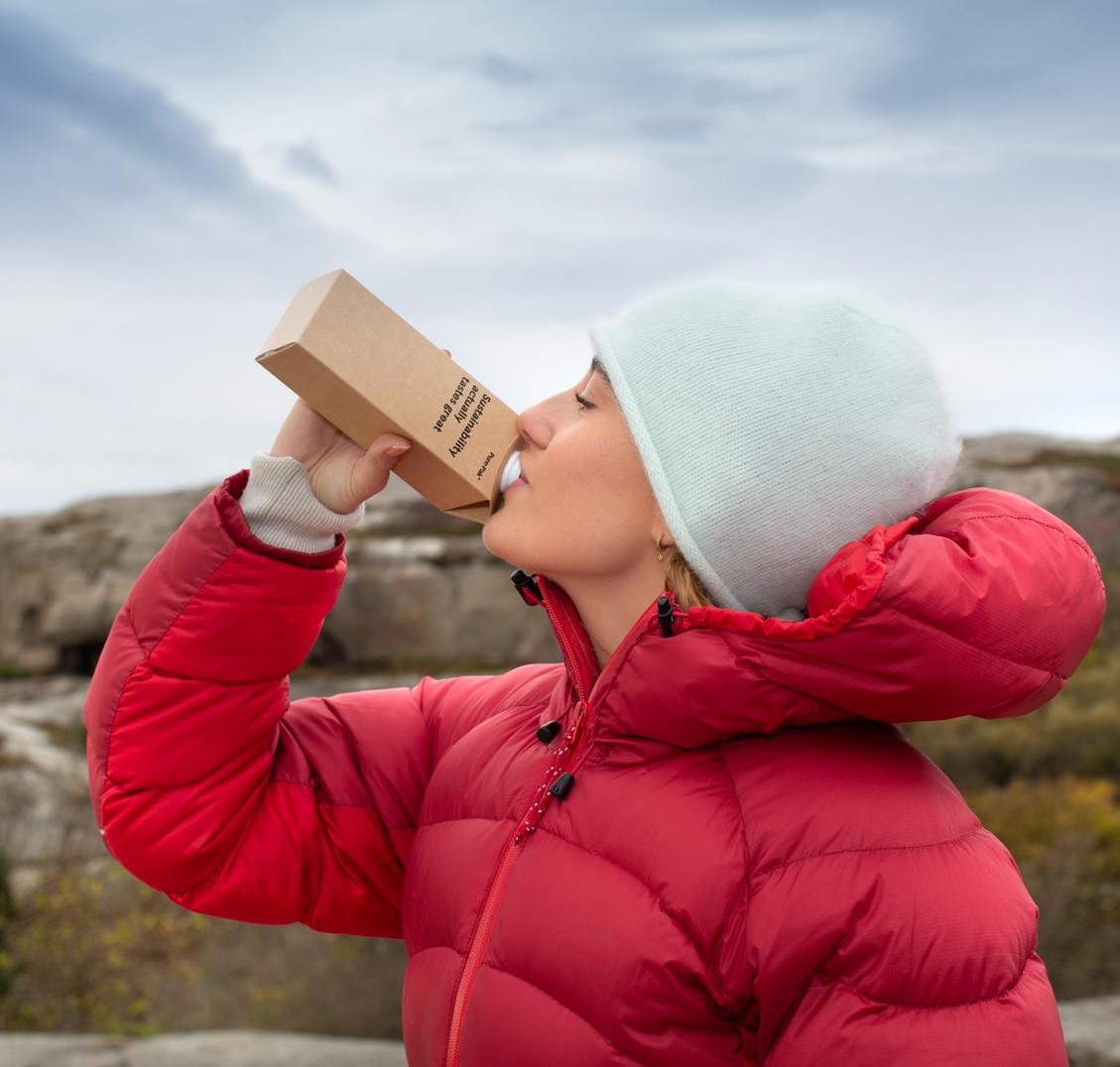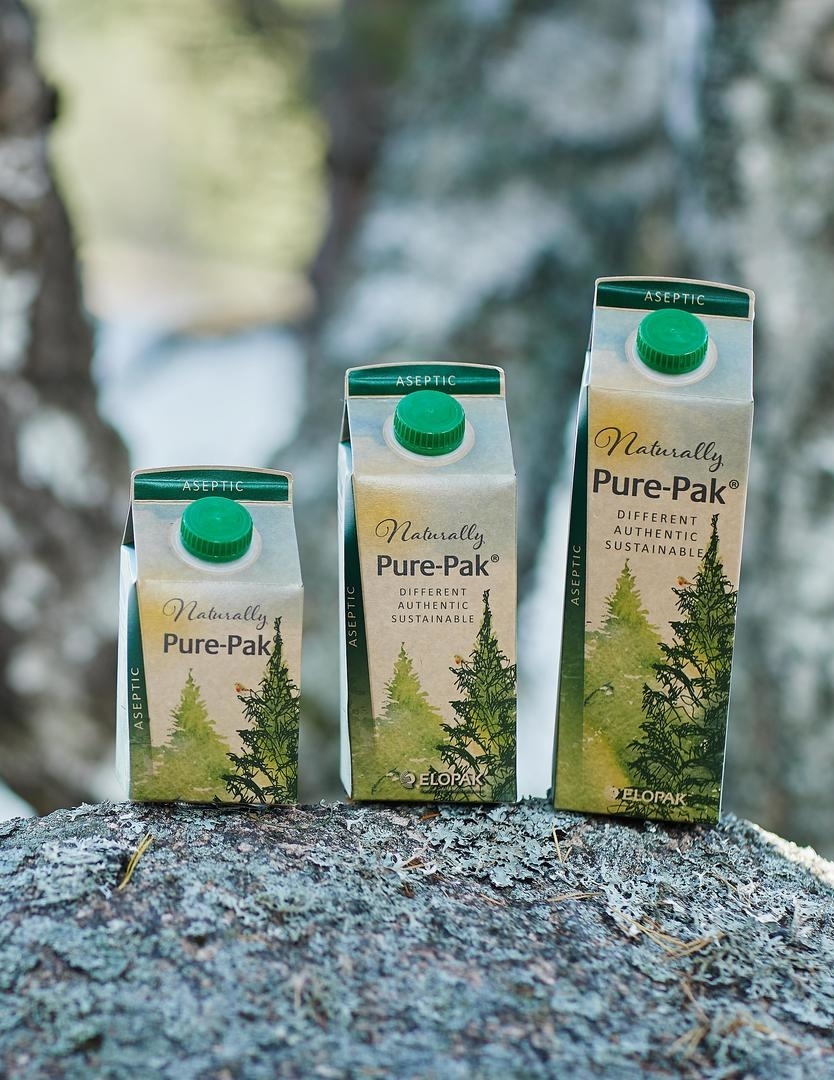Our recycling
Made of materials ready for countless new applications, our Pure-Pak® cartons live on after use when collection and recycling are available. At a growing number of recycling sites, the carton’s layers are separated for remanufacturing into new products such a cardboard boxes, furniture and roof tiles.
Our cartons contain fibres of very high quality that can be recycled up to seven times. The challenge is to work with stakeholders to continue to make national collection and recycling facilities more widely available and easily accessible, so more people can recycle. Therefore, Elopak works together with associations and industry peers to increase and strengthen the awareness, collection and recycling of cartons across our markets.
Elopak is an active member of dedicated beverage carton associations in many countries, and a founding member of EXTR:ACT, an organisation dedicated to increasing the collection and recycling of beverage cartons in Europe.
Progress on recycling
The beverage carton recycling rate in Europe has been steadily increasing over the past two decades.
In 2019, the carton recycling rate in EU was 51%, up 2% on the previous year. Some European countries reach rates above 70%, while there is still room for increased recycling participation in other countries. The beverage carton industry in Europe has set a joint target of 70% recycling by 2030.
In Canada, the recycling rate for gable top cartons in 2020 was 61%. The Carton Council of Canada has set an ambition to see the carton recovery rate grow to 70 per cent by 2025 (from 60 per cent in 2018).
In the US, over 61% (71 million) of households have access to beverage carton recycling in. Elopak works actively in the industry to drive the collection, sorting and recycling of beverage cartons in the North American market.

Canada announces first recycling plant for 20 years.
On 1st May 2020, the Carton Council Canada announced the opening of Sustana Fiber’s mill located in Lévis for the recycling of food and beverage cartons.
The Sustana Fiber Lévis mill is the first in Canada to recycle cartons for 20 years. Its initial capacity estimate at 3,000 to 4,000 metric tons of used cartons annually is expected to rise in volume. The decision to recycle cartons reflects Sustana’s strategic commitment to innovation and sustainability; and meets the need for alternative sources of high-quality fiber due to the increase of household paper products.
“By recycling alternative fibers, we are proud to enhance our support for a thriving circular economy and help conserve precious resources. We are also keen to do our part, supporting the supply chain and working to make the products people need,” says Michele Bartolini, Senior Marketing Director at Sustana.


Case
Recon polymers starts recycling of plastic and aluminum
The Dutch company Recon Polymers, located in Roosendaal, has developed a new innovative technology to process the plastic and aluminum mix from beverage cartons. In September 2020, they started commercial production with a capacity of about 6,000 tons of PolyAl per year.
Recycling of plastic and aluminum
Elopak’s cartons consist of paperboard with a small amount of plastic and, in some cases, a thin layer of aluminum. The recycling of paper fibers, converting them into high-quality paper pulp for use in both industrial and consumer products, is already a well-established process with healthy market demand where collection and recycling schemes are in place.
Elopak is working to increase the possibilities for recycling the plastic and aluminum mix. Recon Polymers first separates the HDPE plastic caps and the LDPE plastic layers. The recovered plastics from the caps enter into existing end-markets for recycled HDPE, such as pipes and recycling bins. The LDPE plastic and aluminum mix are processed into a new raw material. The Dutch producer Fauna Bird products BV has already put on the market some products made from PolyAl, such as bird feeders for their brand ‘Singing Friend.’ These products can already be found at major Dutch retailers, such as Jumbo and Albert Heijn.
“This is a significant step for our industry and represents a game-changer for beverage carton recycling,” says Inge Eggermont, Specialist Manager Sustainability. “Other countries have shown interest in this process, and the installation is a showcase for the future of recycling across all industry sectors and will hopefully lead to further investments across Europe and beyond.”
